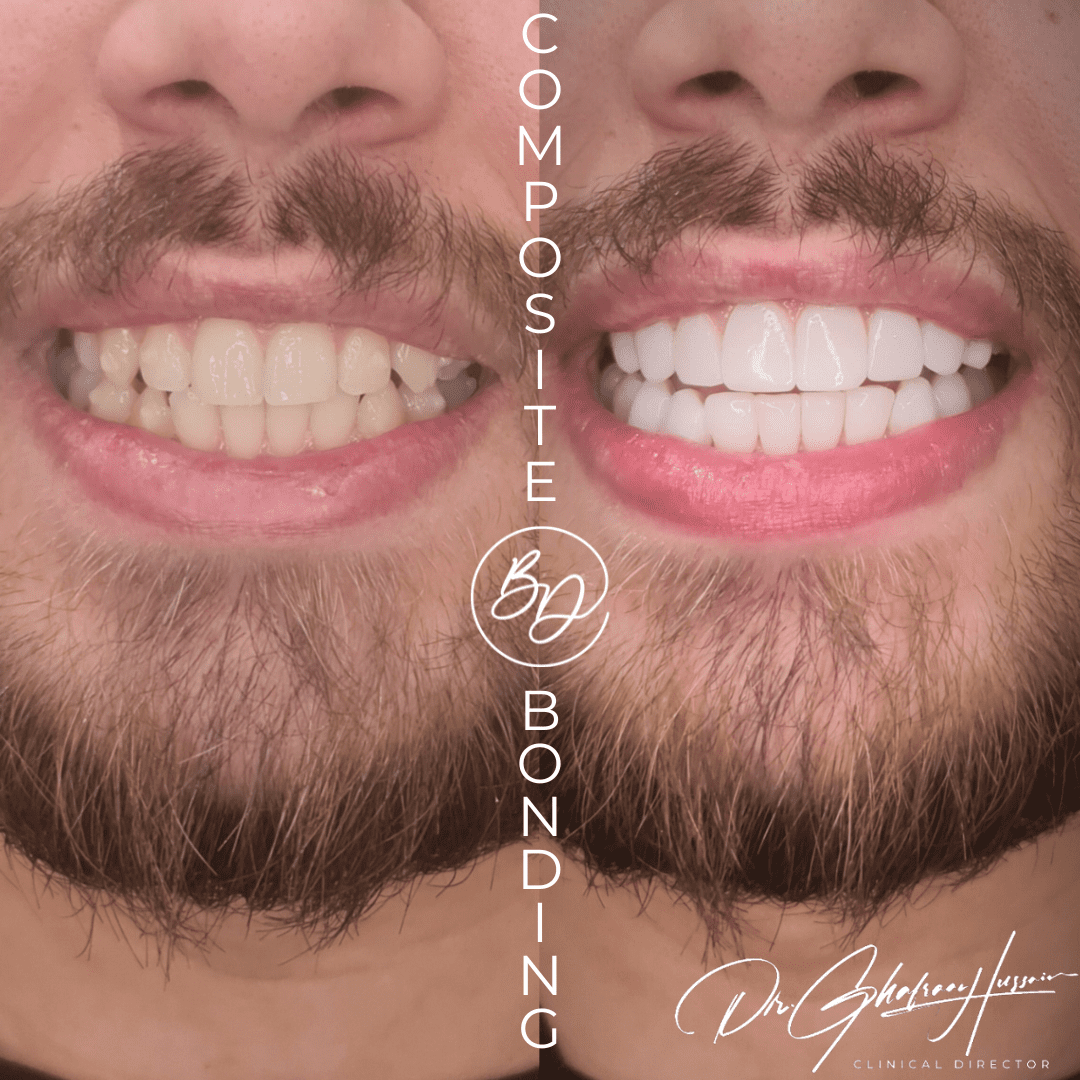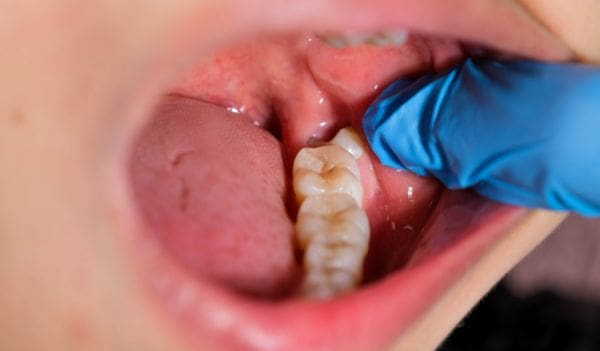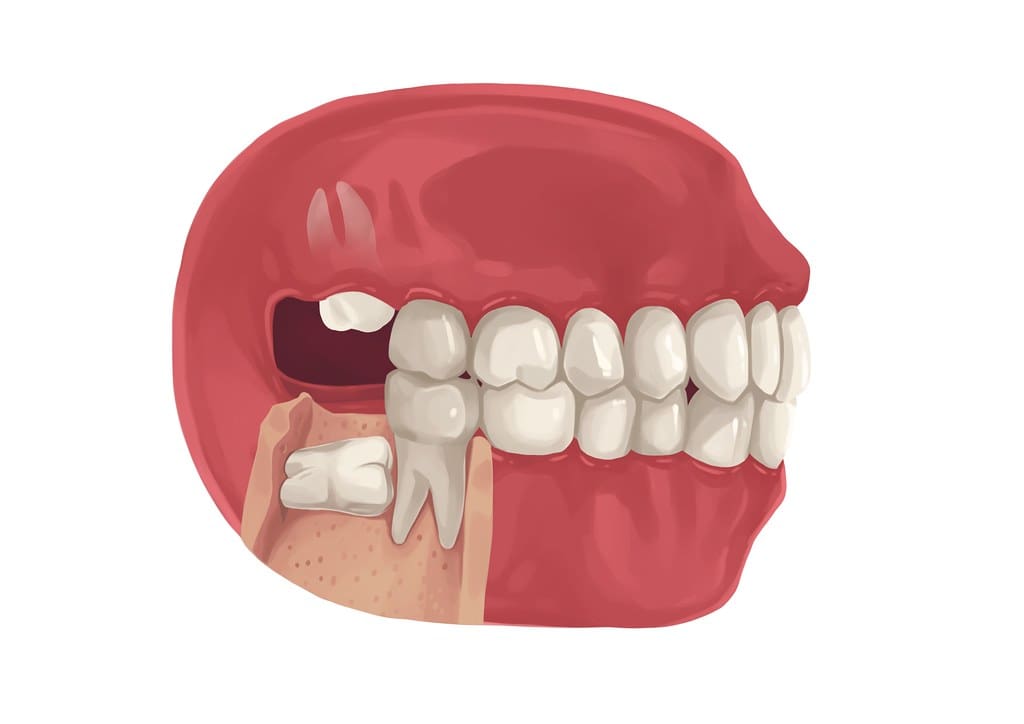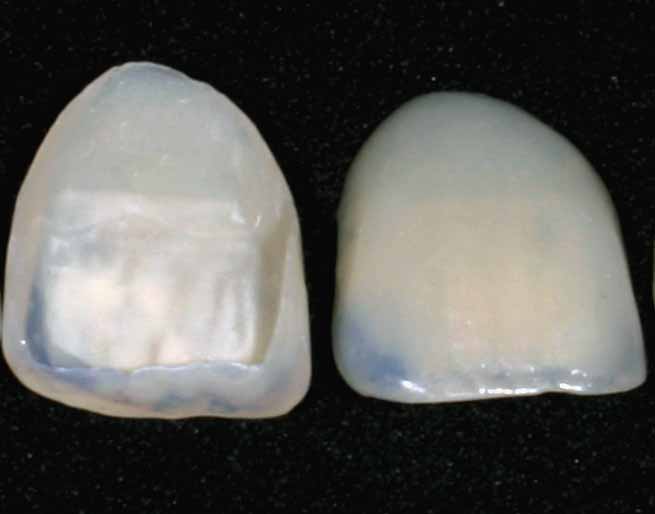About This Condition
A bright, beautiful smile is emblematic of good health and radiates vitality from the inside out. However, slight imperfections like discoloured teeth can sometimes mar the look of your teeth, leaving you feeling self-conscious about your appearance.
Understanding what causes tooth discolouration can help you make smarter, more informed choices about your oral health. From preventive measures to professional treatments, there are plenty of options available to restore the natural appearance of your natural teeth.
A healthy set of radiant teeth doesn’t just light up your face–it reflects your commitment to oral hygiene and well-being. If you’re looking to give your teeth a glow-up, book a consultation with our cosmetic dentists at our London or Manchester clinics to explore a treatment plan best suited to your unique needs.

Types of Tooth Discoloration
Your teeth might appear discoloured for a number of reasons, the most common of which are tobacco use, dental trauma, poor oral hygiene, diet, and medications.
1. Extrinsic Stains:
These appear on your tooth surface or the outermost layer of your teeth, called the enamel. Consuming too many foods and drinks that are highly pigmented, such as coffee, tea, red wine, and certain berries, can stain your teeth. Smoking can also discolour your teeth and leave a yellow or brownish tint.
2. Intrinsic Stains:
These come from within your tooth, often due to factors like ageing, trauma, or certain medications. As you age, your tooth enamel naturally wears down, revealing the yellowish dentin beneath. The dentin can darken as a result of injury or trauma to your tooth, which can cause internal bleeding or damage to the innermost layer, the pulp.
3. Systemic Causes:
Tips For Preventing Tooth Staining
1. Maintain Good Oral Health
2. Curb Your Intake of Dark Coloured Foods and Drinks
3. Regular Dental Hygiene Therapy
If you haven’t yet booked a professional cleaning appointment, you can do so now by clicking here. We look forward to helping you take better care of your teeth and gums!

Treatment Options for Tooth Discoloration
Get rid of tooth discoloration and give your smile an upgrade. There is a variety of teeth whitening treatments available at Bespoke you can choose from.
1. Professional Teeth Whitening
Extrinsic stains can be treated with professional tooth whitening–a popular and effective in-office procedure that uses bleaching agents like carbamide peroxide or hydrogen peroxide to break down stains and lighten the teeth. It is a safe and effective procedure for boosting and brightening the natural color of your teeth without removing any tooth structure.
2. Dental Composite Bonding
Composite bonding involves applying a tooth-coloured resin to the surface of your discoloured teeth to conceal any unsightly stains. This is a more conservative and cost-effective option for treating both intrinsic and extrinsic types of tooth discolouration. Read more about composite bonding Here.
3. Dental Veneers
Veneers are thin, custom-made shells that cover the front surfaces of the teeth. They are an excellent option for seamlessly covering deep stains and provide a long-lasting solution for a uniform and brighter smile.
You can get veneers at both our London and Manchester locations.
If you have discoloration that bothers you, we can help you find a solution. For personalised professional advice and guidance, please do not hesitate to get in touch and book an appointment with us.
We Can Help With Any Issues You May Be Having And Always Offer Advice And Options To Suit All Individual Needs.
Latest Articles
Frequently Asked Questions
At Bespoke, teeth whitening is performed by a registered dental professional using the right technique and only the highest quality whitening products. This ensures safety and guarantees minimal irritation and other adverse effects.
A tooth bleaching treatment at Bespoke Dental and Implant Clinic starts from £349. For more pricing options, please click here or talk to one of our dentists. We offer financing plans that cater to every budget. If you want whiter teeth, please feel free to get in touch and we’ll work out a plan that works for you.


